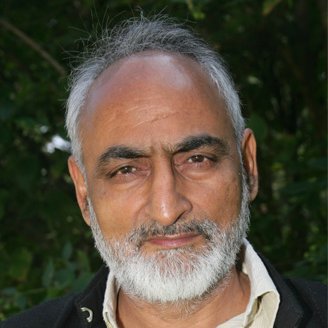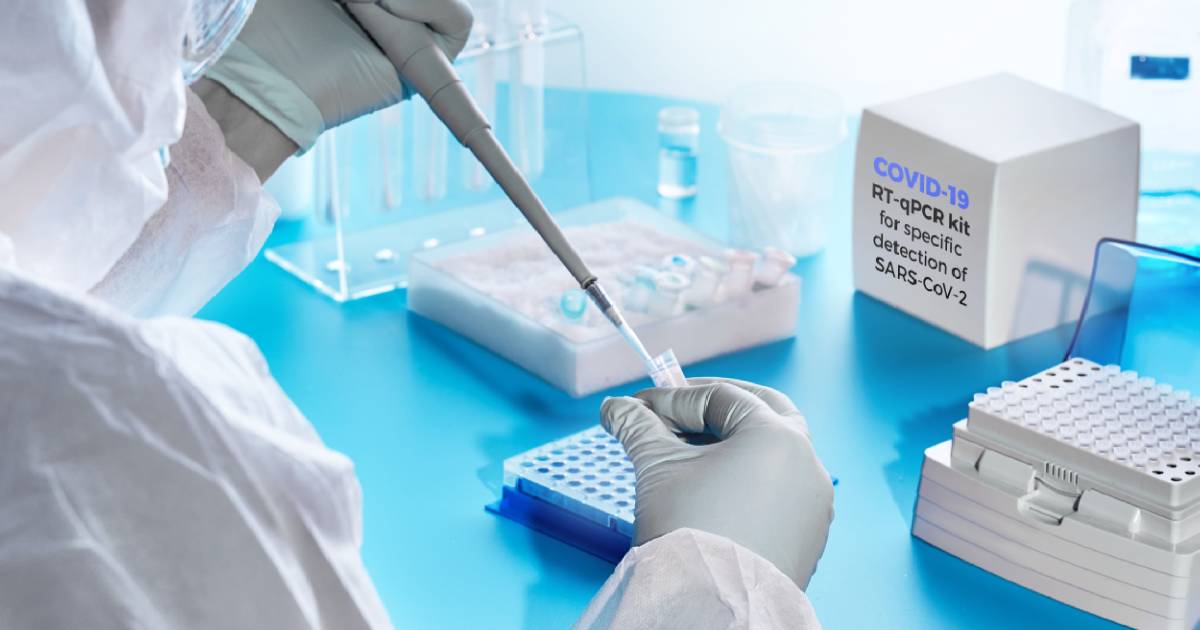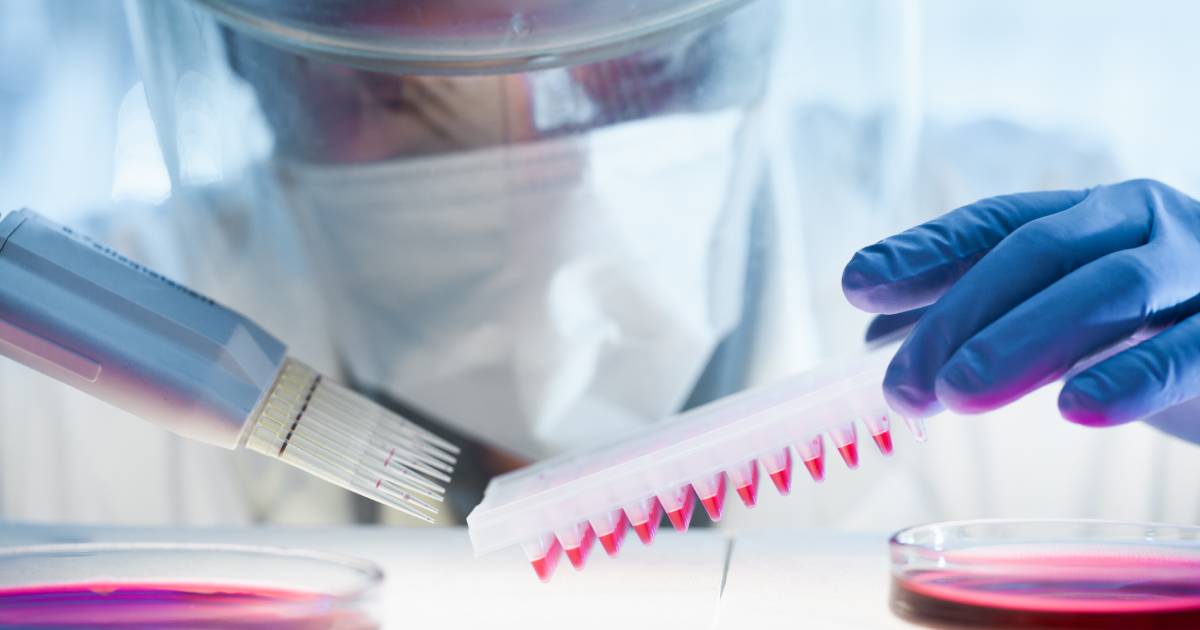
Dr. Rakesh Mishra is presently the Director of CSIR-Centre for Cellular and Molecular Biology (CCMB), Hyderabad. He received his Ph.D. (Organic Chemistry) degree from the University of Allahabad in 1986. Subsequently, he started his carrier in biology at the Indian Institute of Science, Bangalore. He has several years of research experience at the University of Bordeaux (France), Saint Louise University (USA), and University of Geneva (Switzerland).
He research interest is in genome organization and epigenetic regulations during development, evolution of complexity in biological systems, and genome interaction with environmental factors.
Second important point is that we should be prepared for the diagnostics and quick response to such eventuality
The world is going through an unprecedented healthcare crisis never seen for many decades -more than a century. This extraordinary situation has also given us many lessons and many insights into the strength and shortcomings of our social structure. Here I would just like to mention some of the lessons that we learnt from this crisis, which also indicate what we need to do with immediate effect to face such a situation in future.
We need a much better and improved government hospital as they are the main service providers for the public. Private hospitals, typically are more expensive, with limited capacity as well as affordability factor and this is the prime reason they cater to the need of only 10 to 15% of the population. Remaining people need to depend on government hospitals and, therefore, our focus should be to strengthen our health care system in near future.
Second important point is that we should be prepared for the diagnostics and quick response to such eventuality. This requires capacity and platforms where we can quickly adopt and modify or develop methods and techniques for new situations like new infections and, more importantly, we should have the capacity to scale them up both in terms of production and service providing. Strong and resourceful foundation is needed to meet such challenges in the future. It is important that the system cares and nurtures the R&D specially in the Healthcare sector.
Other lesson we learnt from this pandemic is significance of academic and Research organisations in such situation. It turns out that in addition to the hospitals and other regular Health Care organisations, the role of academic and Research institution is very important, in fact, it carve an eminent niche to face such pandemic challenges. One simple reasons for this is that such institutions are naturally better placed in terms of brightest of young minds – the young students. In fact they are the premium asset of our society and they are concentrated in the academic and Research organisations in the country. It is only expected that when something unknown comes it becomes obvious for the society and the system of the government to turn towards such organisations. Therefore, the responsibility of academic institutions becomes very obvious.
I’m going to take example of CCMB, one of the 38 constituent laboratories of CSIR, mandated to do basic research and find potential applications of this research and produce trained manpower for modern biology. The current pandemic prompted a spontaneous response from the entire CCMB community. In particular, the student community was convinced that we should be able to contribute towards handling this pandemic. It is extremely touching because these are the students who come to do their PhD and are already very busy with their own challenges that they are facing during this pandemic time still they endeavored to provide solution for the nation. With the help of the students and the staff, first step was to reorganize our Biosafety level (BSL 2/3) and other facilities to carry out the testing of COVID-19 and handling the virus. We interacted, after the request from the State Health Department, with the medical institutions that were declared at the time as the testing centre for COVID-19. We trained their staff for handling the viral sample as well as made them confident to deal with the infected samples and also edifying the modern Molecular Biology techniques used for testing. We still continue to train the technicians from public/private medical schools and other academic organisations as and when required.
While carrying out large scale testing, we also brought several modifications and improvements in the process, like pooling of samples and dry swab RNA extraction free RTqPCR testing. These small changes have the potential for big impact in managing this pandemic, some of these findings/ protocols are available in the public domain. These simple changes make the process much safer, convenient, cheaper, and easily scalable.
We are also developing a very high throughput method which requires Next Generation Sequencing (NGS) set up in collaboration with Bangalore based Biotech company, Syngene International. Once in place, this technology will allow processing of up to 50,000 samples in one go. That will make the whole testing approach very different because such a large number of samples can be handled with a fraction of the current per sample cost.

One of the major challenges we confronted was to grow the virus in the lab. It was an important decision to go for it as it opens up several avenues to understand the biology of the virus and find potential interventions viz., vaccines/ immune-therapeutics development, drug
More recently, we started testing for virus traces in the sewage system. It was extremely rewarding exercise as we could quickly establish technology to detect viral trace in the sewage, and not only that, we could calculate back the viral load in the catchment area of sewage system. This will be very useful as surveillance system which can provide very economical, convenient, and safe way of estimating the viral load and the proportion of the infected population in the city. This is not only useful for the COVID-19, rather it is an important technology to monitor the load/ prevalence of infectious agents in the cities.
One of the major challenges we confronted was to grow the virus in the lab. It was an important decision to go for it as it opens up several avenues to understand the biology of the virus and find potential interventions viz., vaccines/immunetherapeutics development, drug screening, etc. We are currently interacting with large number of companies and academic institutions in area of antiviral drugs/ preparations/equipment development.
One of the important aspect of this pandemic is the dynamics of the virus, how fast it is mutating and there are new avatars of the virus emerging with novel clinical consequences. We started genome analysis of coronavirus and in the process discovered a unique clade of the virus which we named as A3i, which had Southeast Asian origin and was largely confined to the Southeast Asian region. In India, it was more prevalent in southern part of the country and some parts in the north. More recently, A3i is almost completely replaced by A2a, a clade prevalent all over the world. Such analyses also indicate that the virus is mutating but not beyond the anticipated, which means that the drugs and vaccines will be useful for larger proportion of the people across the world.
One thing that is needed and has been demonstrated during this pandemic, is the role of academic institutions mandated for fundamental research can contribute in a significant way to the problems that are of unprecedented nature with unknown factors/organisms. The experience of fighting the pandemic has given us many other positives. For example, the unparalleled response during such an unprecedented crisis has been clear and impactful. There has been a number of examples of innovation, out of box thinking, cooperation and collaboration among public-private organizations that have expedited the process of making Diagnostics accessible to large numbers, quick initiatives on the repurposing of drugs, making devices with anti-viral purpose and many other things. One example is diagnostic kits and PPE shortage during the early phase of this pandemic. It is amazing to see that for many such items we are not only self-sufficient but is also in a position to help other countries.
One more important experience that emerges from this crisis is that there is a big responsibility for academic and research Institutions to communicate to people. People should know from informed sources and, more importantly, what is not known so that wrong information that misleads or frighten people don’t gain prominence. When we’re talking about an unknown and new disease, it is the responsibility of scientists to read, discuss, think, and come out and explain to the public, politicians, policymakers, and administrators. It is necessary so that correct message is displayed and rumours don’t misguide people. This is extremely important because if academic institutions don’t come forward and take initiative, the news will come from the wrong sources and that can lead to avoidable disasters.
I would like to point out that people have suffered, the economy has suffered, there have been social constraints, lots of loss to classroom academic activities, etc., etc., but we also learnt a lot from this crisis, a lesson that can prepare us better in future. It is very obvious that we need to be better prepared for such pandemic in terms of self-sufficiency of Diagnostic and therapeutic supplies,technical competence to adopt/establish new tests and interventions. We need policy and financial facilitation that may be required to put such options in place. We also need to put in place the zoonotic and other surveillance setup as a regular component of our system. This is important because there is an obvious increase in the humanwildlife interaction which brings in new kinds of parasites which are otherwise confined to the wild life. It is separate matter that we need to restrict such encroachments to the wildlife and respect the nature as such.
We also need to put in place surveillance systems for sewage and air using modern technologies that are efficient and affordable. It is obvious that preparedness for new situation comes with the strong foundation of Science and Technology in the country. It is not only for the crisis situation but also for the normal situation where the better scientific base, the better we are positioned to meet the requirement of the people and keep the country strategically more assured and self-sufficient. It is absolutely necessary that the expenditure on science to gain new knowledge will significantly enhance the generation by several fold and also make it sustainable to meet the future requirements. It will be a good strategy to make us more resilient to face the crisis of this kind in future.
In conclusion, we can certainly see that India has emerged, so far, very strong Nation in fighting this crisis in terms of improving its immediate response of protection gear needed for health care worker as well as handling of the disease by providing medical care, enhancing Hospital facilities at a much larger scale and improving the diagnostics significantly in very short time. At present, we will in much better situation in terms of capabilities, to manage the pandemic as compared to what we were only few months back. It will be useful to take this good work forward and strive to develop our Science and Technology to a acceptable readiness level to deliver to the need of the people.
Composed by: Dr. Rakesh K Mishra

